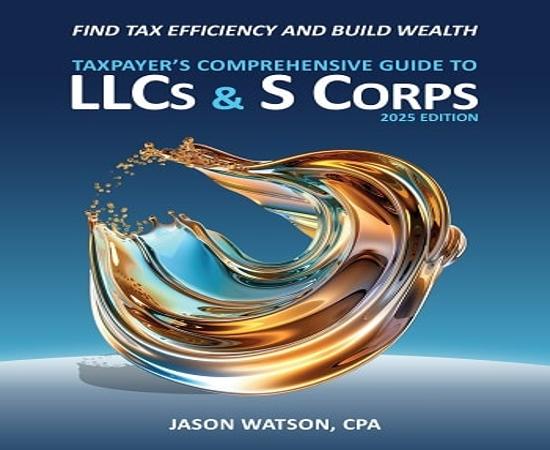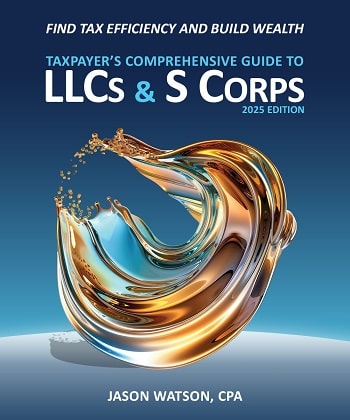taxpayer’s comprehensive guide to LLCs and S Corps: An Essential Overview
Are you a taxpayer looking to navigate the intricacies of LLCs and S Corps? Look no further than the Taxpayer’s Comprehensive Guide. Authored by Jason Watson, this guide is a definitive resource for individuals seeking to understand the complexities of these business structures.
Benefits of the Guide
The taxpayer’s comprehensive guide offers a wealth of benefits, including:
- Clear explanations of LLCs and S Corps
- Guidance on tax implications
- Tips for maximizing benefits
- Insights from a trusted expert
Detailed Explanation
LLCs and S Corps are popular choices for small business owners due to their flexibility and tax advantages. However, understanding the nuances of these structures can be challenging. That’s where the Taxpayer’s Comprehensive Guide comes in.
This comprehensive resource breaks down the differences between LLCs and S Corps, outlining the advantages and disadvantages of each. From formation to taxation, this guide provides a step-by-step overview to help taxpayers make informed decisions.
Frequently Asked Questions
1. What is the difference between an LLC and an S Corp?
While both LLCs and S Corps offer limited liability protection, they differ in terms of taxation. LLCs are pass-through entities, meaning profits and losses are reported on the owner’s personal tax return. S Corps, on the other hand, are subject to specific taxation rules set by the IRS.
2. How do I choose between an LLC and an S Corp?
The decision between an LLC and an S Corp depends on your business goals and financial situation. Consulting with a tax advisor or utilizing resources like the Taxpayer’s Comprehensive Guide can help you weigh the pros and cons of each structure.
3. Are there filing requirements for LLCs and S Corps?
Both LLCs and S Corps have specific filing requirements that vary by state. The taxpayer’s comprehensive guide outlines these requirements in detail, ensuring taxpayers are compliant with all regulations.
4. What are the tax benefits of an S Corp?
S Corps offer tax benefits such as the ability to avoid self-employment tax on distributions. Understanding these benefits and how to leverage them is crucial for maximizing tax savings, a topic covered in the Taxpayer’s Comprehensive Guide.
5. How can I order the Taxpayer’s Comprehensive Guide?
To order the taxpayer’s comprehensive guide, visit the official website for more information on pricing and delivery options. This guide is a valuable resource for taxpayers looking to deepen their understanding of LLCs and S Corps.
Conclusion
In conclusion, the Taxpayer’s Comprehensive Guide to LLCs and S Corps is an invaluable resource for taxpayers seeking clarity on complex business structures. Whether you’re a small business owner or a seasoned entrepreneur, this guide offers insights that can help you make informed decisions and maximize tax savings.


